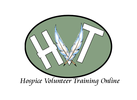The 92 year old woman had a skin cancer that was biopsied. Following the results, a surgey took place to remove the cancer which was now reportedly an aggressive cancer. It had spread behind her eye and into her skull. The family was not studying steps to take next but depending on health care professionals to guide them in their decision making. Surgery would be the treatment option that would be decided on by the family.
A couple of month earlier, this 92 year old woman was still taking daily walks and enjoying her kids, grandkids, and great grandkids. She would sometimes get my mail by mistake in her mailbox. "You have a letter here" she would call and say. "Better come get a cup of coffee with me and see if it's anything important". The letter would almost always be a piece of junk mail but the kind senior would hold it ransom until me or my husband would come to her house, get the letter and proceed to visit.
I placed a courteous call to my neighbor, the daughter of the 92 year old woman, to inquire about her mother's status.
"She's on a ventillator. If she makes it through this, then we are going to discuss chemo and radioation. Can hospice help her?".
"Really?", I thought. I knew better than to voice my opinion. I can't imagine putting someone through that who is 92 and has aggressive cancer so I asked the neighbor to ask the doctor one question. "Will this treatment be for curing or for just making Mama comfortable?" Then, I told her the truth. "If the doctor says this treatment is not for cure, then you know that he or she believes there is a good chance that your mother will not live longer than 6 months". It may have seemed cruel but I couldn't lead her to believe that hospice is a great service to provide a lot of extra attention but a specialty program for the person who may not live through their disease. By the way, this did not remove hope but evoked words of gratitude from the daughter, "That's what I wanted to hear - the truth".
I didn't want to interject too much of my opinion here with fear of making the daughter feel guilty about any decisions she and her family were making at this time. I wanted the doctor to have an opening to begin discussing possible outcomes and hopefully this question would be the prompt.
I took the scenario personally as I do any situation that seems to cause more harm than good. Mentioning the situation to a hospital discharge planner, I was taken aback at her response. "Whose to say that this woman won't live until she's 102 and that is what she wants?" Good point. Who was I to say that all this was not going to work and offer this woman a long satisfying quality of life?
This is where I began another awakening. I still have a few of them as I get older.
The goals of care begin to distort because none of us ever know what the real outcome will be. How can the layperson ever know that the decisions made during a crisis are going to be the best for those we love? I believe completely in advanced directives like the 5 Wishes form that I present to community groups. However, in moments like this one the advanced directives only tell us that our loved did not want to be eternally hooked up to a machine. Rarely do we discuss what we want done in the earlier stages of bad news discussions. In survival mode at the beginning of the roller coaster ride of disease, all decisions are optimistic. We will try anything and everything and when that doesn't work we will choose not to be kept alive by life support systems. Somehow we must learn to clarify our goals earlier - or maybe just continue the way we do things now.
Last night, the 92 year old's life ended, 2 days after surgery.
Robin Watts is the founder of Hospice Volunteer Training Online





